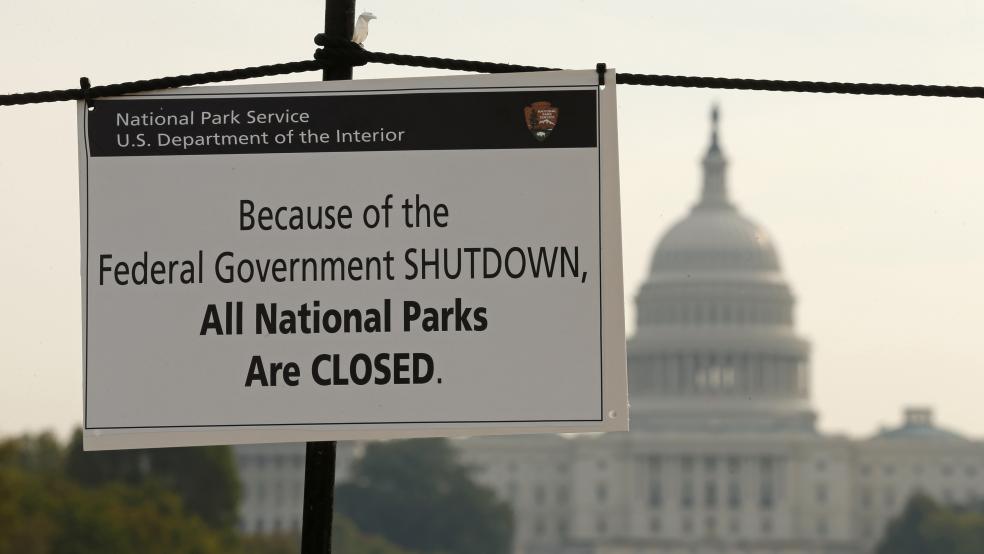In advance of the unveiling next week of President Trump’s fiscal 2018 budget, House Democrats warned on Thursday that they were prepared to go to the mat if necessary to prevent an increase in defense spending at the expense of domestic programs.
It was only a matter of time before the simmering controversy over spending parity finally bubbled up. But during a morning press conference on Capitol Hill, leading Democrats on budget and appropriations matters cautioned that they might take Trump up on his threat of a government shutdown in September unless they gain important GOP concessions.
Related: The Five Biggest Winners and Losers in Trump’s Fiscal 2018 Budget
“They’re going to need our votes to pass anything,” Rep. John Yarmuth of Kentucky, the ranking Democrat on the House Budget Committee, told reporters.
Rep. Nita Lowey of New York, the senior Democrat on the House Appropriations Committee, said there was “no chance” House and Senate GOP leaders can succeed in ramming through a fiscal 2018 budget and spending package bulging with additional defense funding and light on domestic funding.
The president signaled in a preliminary “skinny” budget released in March that he will seek at least $54 billion more in funding for the Pentagon in fiscal 2018 and that he would offset the cost with dollar-for-dollar reductions in government agency spending and social-safety net programs.
“So if you want to shut the government down, keep talking about this skinny budget,” Lowey said.
Trump officials are still fine-tuning the administration’s budget submission of more than $4 trillion for the fiscal year that begins Oct. 1, but provided a preview of the president’s spending priorities in the skinny budget.
Related: Eight Gimmicks to Watch Out for When Trump Unveils His Budget
That document called for big spending increases for defense, veterans affairs and homeland security, along with deep cuts of as much as 30 percent in an array of areas including the Environmental Protection Agency, the State Department and the Department of Health and Human Services.
At issue is whether Trump and his Republican allies on Capitol Hill will insist on raising the legal spending cap on defense spending next year by $54 billion while refusing to raise the cap on domestic discretionary spending by an equal amount.
The caps were created by Congress and the Obama administration as part of the 2011 Budget Control Act to impose discipline on government spending and try to rein in the debt. The law imposed a sequester -- automatic spending cuts across the board any time annual spending threatened to exceed the caps.
However, in practice, Congress has lifted the caps three times to address a fiscal crisis and to reach bipartisan budget agreements. The caps were lifted twice in 2013 and once in 2015.
Under the current law, Congress is required to cap annual defense spending at $549 billion and domestic spending at $516 billion in fiscal 2018, according to the Center for Budget and Policy Priorities. In effect, that would force a $2 billion cut in defense spending from the fiscal 2017 level and a $3 billion reduction in discretionary domestic programs from this year’s mandated levels.
While many Democrats agree with the GOP on the need for more defense spending, they want to make sure it isn’t done at the expense of important domestic programs.





